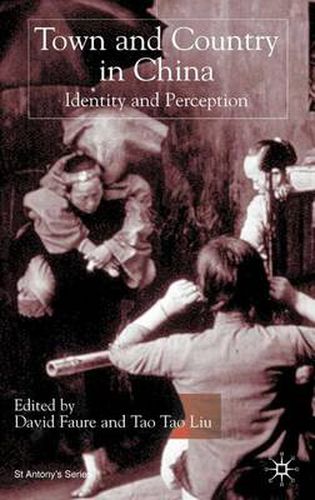Readings Newsletter
Become a Readings Member to make your shopping experience even easier.
Sign in or sign up for free!
You’re not far away from qualifying for FREE standard shipping within Australia
You’ve qualified for FREE standard shipping within Australia
The cart is loading…






This title is printed to order. This book may have been self-published. If so, we cannot guarantee the quality of the content. In the main most books will have gone through the editing process however some may not. We therefore suggest that you be aware of this before ordering this book. If in doubt check either the author or publisher’s details as we are unable to accept any returns unless they are faulty. Please contact us if you have any questions.
The transformation in Chinese social theory in the 20th century placed the rural urban divide at the centre of individual identity. In 1500, such distinctions were insignificant and it was the emergence of political reforms in the early 1920s and 1930s which separated cities and towns as agents of social change and encouraged a perception of rural backwardness. This interdisciplinary collection traces the development and distinctions between urban and rural life and the effect on the Chinese sense of identity from the 16th century to 2001. It provides a example of the influence that political ideology may exert on an individual’s sense of place.
$9.00 standard shipping within Australia
FREE standard shipping within Australia for orders over $100.00
Express & International shipping calculated at checkout
This title is printed to order. This book may have been self-published. If so, we cannot guarantee the quality of the content. In the main most books will have gone through the editing process however some may not. We therefore suggest that you be aware of this before ordering this book. If in doubt check either the author or publisher’s details as we are unable to accept any returns unless they are faulty. Please contact us if you have any questions.
The transformation in Chinese social theory in the 20th century placed the rural urban divide at the centre of individual identity. In 1500, such distinctions were insignificant and it was the emergence of political reforms in the early 1920s and 1930s which separated cities and towns as agents of social change and encouraged a perception of rural backwardness. This interdisciplinary collection traces the development and distinctions between urban and rural life and the effect on the Chinese sense of identity from the 16th century to 2001. It provides a example of the influence that political ideology may exert on an individual’s sense of place.